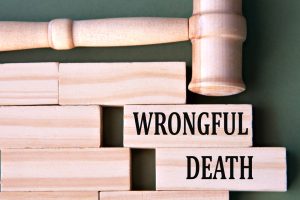A Brief Overview of Wrongful Death Claims
 Slip-and-fall accidents can have many different outcomes.
Slip-and-fall accidents can have many different outcomes.
Suppose an accident survivor sustains serious injuries through no fault of their own. In that case, they are often entitled to file a claim for compensation that can be used to pay for medical debt, replace lost income from work, and mitigate mental anguish. These claims typically take either of the following forms:
However, if an accident ends in a loss of life, victims rarely have any opportunity to assert their rights. The responsibility instead falls to their surviving relatives and to their estate, who may elect to file a claim for “wrongful death” on the deceased person’s behalf.
In New York, state law defines wrongful death as any death caused by “a wrongful act, neglect or default.”
Your Rights After Losing a Loved One In A Slip-and-Fall Accident
The procedures and standards governing wrongful death claims are not that different from those that underlie other types of slip-and-fall accident claims.
In a typical personal injury lawsuit, the plaintiff is the accident victim. If they file a claim, they do so for themselves, often with an attorney’s assistance.
This is not possible if the accident victim has passed away.
Every state has rules determining who can file a wrongful death lawsuit, and under what circumstances. In many states, the victim’s close family—their parents, children, or surviving spouse—can file a claim on the decedent’s behalf. But in New York, only the deceased person’s “personal representative” may initiate wrongful death proceedings.
The “personal representative” is, in most cases, the same individual appointed to serve as executor in the deceased person’s last will and testament. If the decedent had no will, then the court will appoint a representative, with the responsibility most often delegated to a close surviving relative.
Your Possible Damages In A Wrongful Death Lawsuit
The damages awarded in a wrongful death lawsuit differ starkly from those typically awarded in other types of slip-and-fall-related claims.
If you file a wrongful death lawsuit, you could receive damages including, but not limited to, the following:
- Funeral and burial expenses;
- The costs of the deceased person’s end-of-life medical care;
- The value of the financial support and income the decedent would have likely been able to contribute had they survived;
- The value of more subjective forms of support, such as emotional comfort and parental guidance;
- The assessed value of survivors’ lost inheritances; and
- The pain and suffering endured by the deceased person.
New York does not currently permit the award of emotional pain and suffering to the deceased person’s surviving family members.
Obtaining Compensation: What You Need to Prove in Court
The terms of a wrongful death settlement or award can’t ease the burden of grief, but they can help families regain their financial independence while ensuring that a negligent party is held liable for acts of reckless misconduct.
However, you must be able to prove each of the following elements to obtain compensation:
- The person, or party, who controlled the property where the slip-and-fall accident occurred owed your loved one a duty of care;
- The property owner breached their duty of care by acting negligently;
- The landowner or manager’s negligence was the direct cause of your loved one’s death; and
You suffered certain damages as a result of your loss.
 Buffalo Personal Injury Lawyer News
Buffalo Personal Injury Lawyer News

